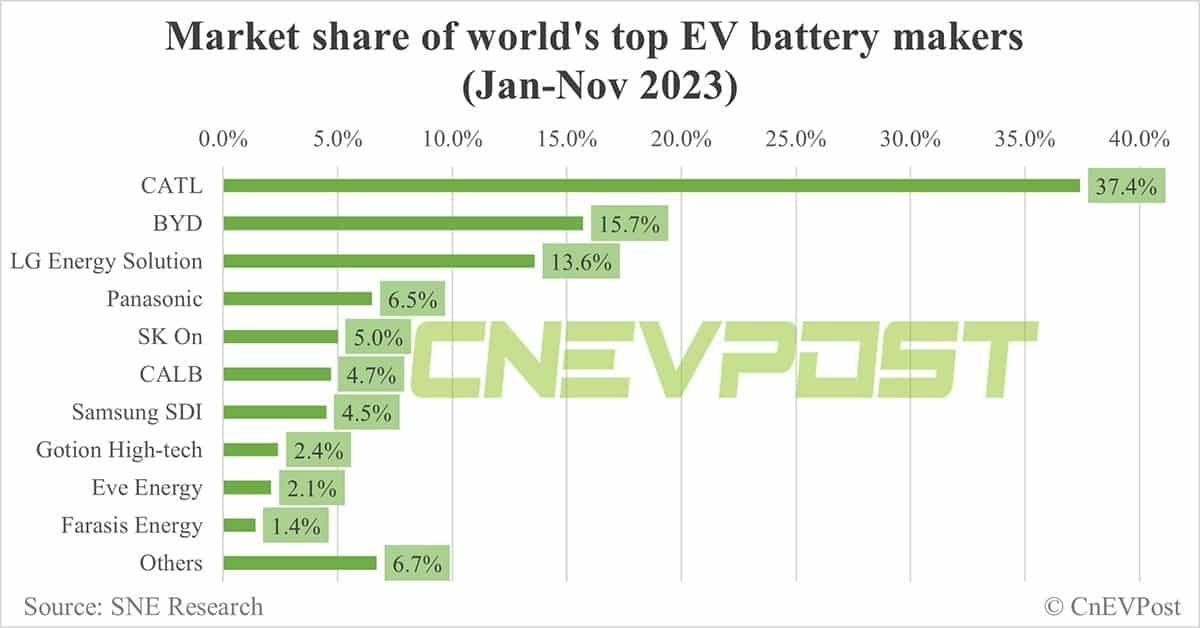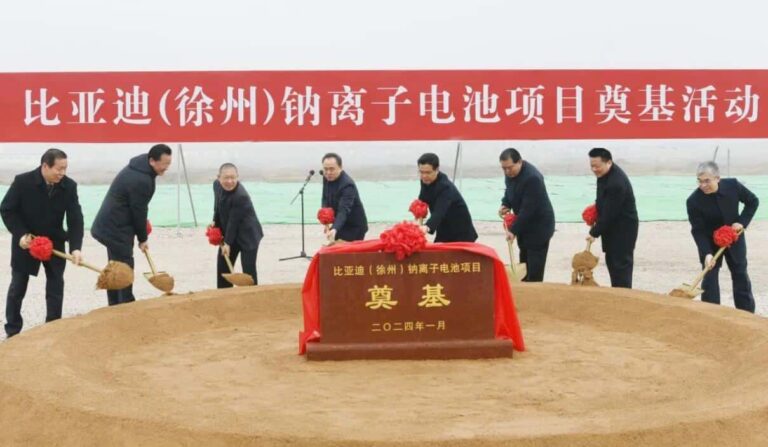CATL's share in the January-November period was higher than the 35.7 percent it achieved in the same period last year, and higher than the 36.9 percent in the January-October period.
In January-November, global battery consumption for electric vehicles totaled 624.4 GWh, up 41.8 percent from 440.5 GWh in the same period last year, according to data released on January 9 by SNE Research, a South Korean market research firm.
CATL installed 233.4 GWh of batteries from January to November, up 52.1 percent from 157.4 GWh in the same period last year.
The Chinese power battery giant continued to rank first in the world with a 37.4 percent share, and remains the only battery supplier in the world with a market share of more than 30 percent.
That was up from its 35.7 percent share in the same period last year and from its 36.9 percent share in the January-October period.
BYD installed 98.3 GWh of power batteries in the January-November period, up 60.4 percent from 61.3 GWh in the same period last year.
The company ranked second in the January-November period with a 15.7 percent share, up from 13.9 percent in the same period last year and slightly lower than 15.8 percent in the January-October period.
South Korea's LG Energy Solution installed 84.8 GWh of power batteries in the January-November period, up 41.8 percent year-on-year.
The South Korean company ranked third in the world with a 13.6 percent share, unchanged from a year ago and down from 13.8 percent in the January-October period.
Japan's Panasonic was fourth with a 6.5 percent share, South Korea's SK On was fifth with a 5.0 percent share, and China's CALB was sixth with a 4.7 percent share.
South Korea's Samsung SDI, China's Gotion High-tech, Eve Energy, and Farasis Energy ranked seventh, eighth, ninth, and tenth, respectively, with shares of 4.5 percent, 2.4 percent, 2.1 percent, and 1.4 percent from January to November.
Notably, Farasis replaced Sunwoda in the top 10 global battery installations for electric vehicles, marking the company's first time on the list.
Farasis' battery installations in the January-November period amounted to 8.9 GWh, up 41.7 percent from 6.3 GWh in the same period last year.
Sunwoda's battery installed capacity was 7.7 GWh in the January-October period, placing it at No. 10 with a 1.4 percent share in the ranking published by SNE Research last month. It failed to make it into the latest ranking.

